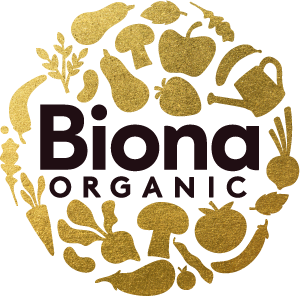Time to Go Organic: Real Food for Real Health
In part one and two in our Organics and Pollination series, you learned that going organic is one way to help protect the Earth and its wildlife. Part three is all about how an organic diet can affect your health. How your food is grown impacts on both your physical and mental wellbeing. Read on to discover the nutritious benefits of natural foods and why the time has come to switch to organic produce.
What is Organic Food?
When talking about food, the word ‘organic’ refers to how agricultural products have been grown and processed. These products fall under two main categories: crops and animal products.
Organic Crops
These are grown without the use of pesticides, synthetic fertilisers or genetically modified organisms (GMOs). Instead of using synthetic chemicals that pollute the environment and are harmful to health, organic farming uses Mother Nature’s natural defences. These include crop rotation and the use of natural fertilisers and pesticides.
Organic Livestock
Animals raised for organic meat, eggs or dairy products must have regular access to outdoor pasture and be fed a hormone and GMO-free diet. The use of growth hormones and routine antibiotics is banned. Instead, farmers ensure animals have clean housing, access to the great outdoors and an organic diet to keep them healthy.
Organic for Health
From a dietary perspective, there is a significant nutritional difference between organic and non-organic produce. The former is food in its most natural and pure form, which means its nutrients and active compounds are protected. It is also food that lacks harmful additives and synthetic ingredients. More of the good stuff, less of the not-so-good. And we all know how important a diet rich in the good stuff is for overall health and mental wellbeing.
Let’s take a closer look at some of those differences, with reference to this study…
The Good
Like we said, eating organic gives you more of the good stuff. Here are some of the nutrient boosts you can expect on an organic diet:
Heart Healthy Fats
Studies suggest organic meat and milk has a healthier fatty acid profile. They tend to be higher in Omega-3 fatty acids, which have been linked with heart, eye and brain health. In comparison, non-organic meat and milk is higher in Omega-6s, which are proinflammatory and linked with heart and cardiovascular disease.
Antioxidants
Naturally colourful foods such as fruit and veg are a great source of antioxidants – compounds which work to protect our cells from oxidative damage. Non-organic farming uses pesticides and herbicides, damaging the skin of fruit and destroying the antioxidants which are found directly underneath. Organic produce helps to protect these nutrients and ensure they’re intact from farm to fork.
Minerals, Maintained
Non-organic farming practices mono-cropping: producing a single crop on one piece of land over and over again. This depletes the soil of key minerals, which has a negative knock-on effect on the nutrient profile of the crop grown in that soil. Organic farming produces crops and animal products that are rich in health-boosting minerals, thanks to regular crop-rotation.
The Bad
The benefits of an organic diet are as much to do with avoiding the not-so-good stuff as they are to do with eating natural and nutritious produce. Going organic will help you to avoid potentially health-harming substances, sometimes found in non-organic foods. These include preservatives, antibiotics, free radicals and genetically modified organisms (GMOs).
The Ugly
At Biona, we think there’s absolutely nothing wrong with food that is irregular or a bit misshapen. Unfortunately, tonnes of fruit and veg are wasted each year thanks to not meeting supermarket standards for uniformity. Organic farming has been shown to decrease malformation and produce higher quality crops. The effect: less waste and more taste, which can only be a good thing!
So what do you think? Are you ready to #goorganicfortheplanet, or are you already there? We’d love to hear about how you incorporate organic food in your diet and way of life. Get in touch on Social Media or via email to share your story.









